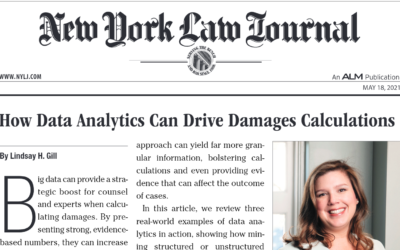As the pace of technological change continues to accelerate, lawyers managing business-related disputes are grappling with an ever-more complicated digital landscape. By collaborating with a computer forensic specialist, lawyers can gain a powerful ally in...
INSIGHTS
Home »
What Divorcing Spouses and Their Lawyers Can Do to Uncover Hidden Digital Assets
If you suspect a spouse is hiding their true net worth, don’t forget to look closely for potential digital assets. When couples navigate the complexities of divorce, financial transparency—or a lack thereof—can play a major part in the outcome of the property division...
Tips to Manage Your Whistleblower Program like a Forensic Accountant—and Make It Far More Effective
An effective whistleblower hotline program could make the difference between catching fraud early and facing a substantial loss. Since the Sarbanes-Oxley Act was enacted in 2002, public companies have been required to provide an anonymous way for...
Forensic Technology: Harnessing The Power of Social Media in Fraud Investigations
Earlier this year, the U.S. Department of Justice charged eight Brooklyn, N.Y., men with fraudulently scamming more than $2 million out of COVID-19 relief programs. How did investigators track down the alleged scammers? Four of the accused men gave the...
How Data Analytics can drive damages calculations
Big data can provide a strategic boost for counsel and experts when calculating damages. By presenting strong, evidence-based numbers, they can increase the likelihood that their theory and calculation of damages will be accepted by judges and arbitrators.
Financial Fraud Investigations: Why an Employee’s Vacation is a Great Time to Detect Fraud
Time off isn’t just a necessity to help employees recover and regroup, it’s also an opportunity for an organization to measure its efficiency and to uncover vulnerabilities it may face from fraud, waste, and abuse. Here are just a few of the ways an organization can...
In a Financial Fraud Investigation, It Pays to Follow the Digital Footprint
Fraudsters often believe they have covered their tracks so well that their activity is untraceable, but they are increasingly running into a significant obstacle when attempting to hide their crimes: Their digital footprint. During the last decade, people have...
What Beneficiaries Can Do to Help Spot Fraud in a Trust or Estate
An estate executor audit can become necessity at some point. An all-too frequent concern for people who are no longer managing their own finances: Are they being taken advantage of by a trustee, executor, or attorney-in-fact—and what can they do to spot and prevent...
Eight Tips for Detecting Fraud in Accounts Payable
According to the Association of Certified Fraud Examiners 2018 Report to the Nations, fraudulent disbursement schemes remain the costliest form of asset misappropriation fraud to threaten small businesses. Although this risk can seem overwhelming, it may be avoidable...
The Power (and Variety) of Data in Forensic Investigations
Time and time again, we trumpet the incredible value of advanced data analytics in forensic investigations – often, it is the key to finding the needle in the haystack. Fortunately, our firm remains at the forefront of utilizing data to identify unexpected patterns when investigating financial fraud – that red flag that tells us something isn’t as it should be – whether for a qui tam case involving kickback schemes or a case of underreported revenue.
Quickbooks Audit Trail: Fraudulent Behavior Detection
The QuickBooks Audit Trail (or Audit Log, depending on the version) provides a log of each accounting transaction and denotes any additions, deletions or modifications affecting the integrity of the transaction. The tool captures every transaction from the time it is initially entered into QuickBooks, and tracks changes to the original entry, including transaction type, date, account, vendor/customer name, transaction amount, quantity, and price. The Audit Trail also reveals the User ID under which the entry, deletion or modification was made. The Audit Trail is a report built in the QuickBooks ReportCenter– all you have to do is click a button to generate the report.
Social Media Evidence: Where to Look and Protocols to Follow
As a digital technology expert, it is fascinating to observe how today’s technology-centric world obsesses over anything and everything digital – especially social media. From sharing locations on Instagram and Facebook to live tweeting events, people constantly...












